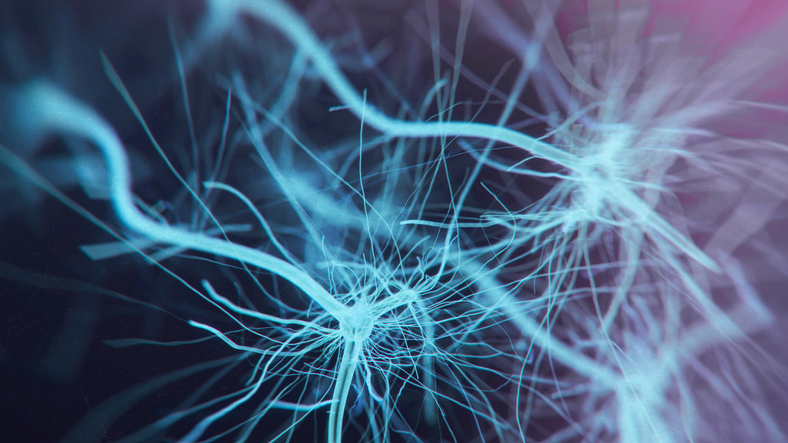Pain
Signs Of Nerve Pain
Source: Cleveland Clinic, WebMD, National Center for Biotechnology Information: U.S. National Library of Medicine: National Institutes of Health, WebMD

10 people found this helpful
Print
Share
Save
What is Nerve Pain?
Nerve pain or neuropathic pain involves damage or dysfunction of one or more nerves in the body. It is often classified based on the type or location of the affected nerves. Nerve pain can occur for various reasons, including, but not limited to, infections, diabetes, vitamin deficiencies, autoimmune disorders, medications, vascular conditions, exposure to toxins, and inherited conditions.
Signs that an individual might be experiencing nerve pain include but are not limited to the following:
- Numbness, Tingling, or Burning in the Hands and Feet
Numbness or tingling can be an early sign of nerve damage. It may spread into the arms or legs. While common after sleeping or sitting in an odd position, persistent numbness or tingling can indicate nerve damage. - Pain Running Down Just One Leg
Sciatica, or sciatic nerve pain, occurs when the sciatic nerve root in the lower back is compressed, irritated, or inflamed. This causes sharp pain, burning, or tingling sensations that radiate from the lower back to the buttock and down one leg. Sciatica most commonly occurs due to herniated discs, bone spurs, or spinal stenosis. - Brief, “Electric” Headaches
Occipital neuralgia is a rare disorder that causes distinct headaches, usually on one side of the head. It occurs when the occipital nerves become inflamed, injured, or irritated. - Difficulty or Inability to Move Parts of the Body
Nerve damage can cause muscle weakness or paralysis, particularly if the affected nerves are motor nerves. These symptoms can also indicate serious conditions, such as a stroke. Therefore, it's best to seek immediate medical attention. - Loss of Feeling Resulting in Injury
Sensory neuropathy can cause loss of sensation in pain, temperature, and touch, leading to a lack of awareness of injuries. Regular check-ups and precautions are crucial for individuals with compromised sensory nerves to prevent unintended injuries. - Increased Instances of Falling or Stumbling
Damage to major nerves affecting sensation can lead to a loss of coordination and proprioception, causing increased stumbling, falling, and lack of stability. For example, damage to the ulnar nerve can result in hand weakness and difficulty with fine motor tasks, while damage to the radial nerve can cause weakness and lack of coordination in the wrist and hand. - Increased or Decreased Sweat Production
When a person's autonomic nerves are impacted, it can disrupt the function of the sweat glands, leading to abnormal sweat production, which may result in conditions such as hyperhidrosis or anhidrosis. Additionally, affected individuals may experience dysregulation of their body temperature, leading to frequent fluctuations in their internal heat levels. - Incontinence
Nerve damage can occasionally cause the bladder or bowels to malfunction. Some individuals may feel like they must urinate more often or even fail to make it to the bathroom on time. Other individuals may have difficulty knowing when their bladder is full or not be able to fully empty it. Constipation and diarrhea are also commonly experienced as a result of nerve damage. - Muscle Atrophy
Nerve damage can cause muscular atrophy in some individuals, which causes the muscles to appear or become smaller than they should be due to the loss of muscle mass and strength. Muscular atrophy caused by nerve damage can affect various parts of the body, including the arms, legs, hands, and feet. It can lead to weakness, decreased mobility, and challenges with fine motor skills. - Twitching
Damage to motor nerves can cause twitching. A person with nerve damage might develop a twitch in a certain part of their body that is affected by the nerve damage. This twitching can occur in muscles that are controlled by the damaged nerves, leading to visible and involuntary muscle contractions. - Dry Eyes/Mouth
Damage to the autonomic nerves can disrupt the function of the glands that produce tears and saliva, leading to symptoms such as dry eyes and a dry mouth. - Sexual Dysfunction
Sexual dysfunction can result from autonomic nerve damage, affecting arousal control. For example, if the autonomic nerves responsible for controlling blood flow to the genital area are damaged, it can lead to difficulties in achieving or maintaining arousal. This can significantly impact a person's sexual health and overall well-being.
Additional Source: Prevention and American Diabetes Association



















